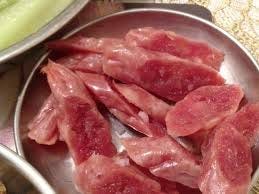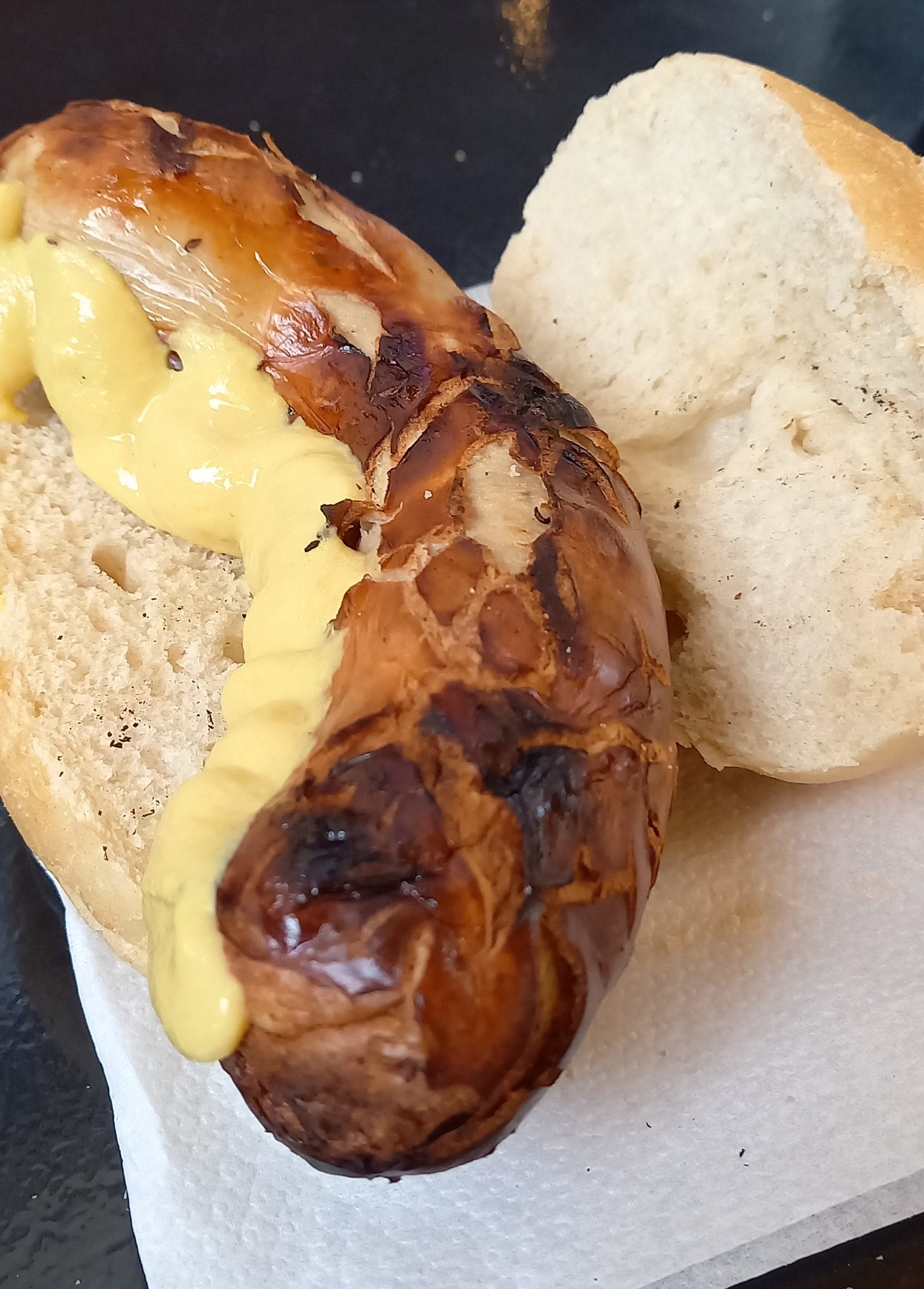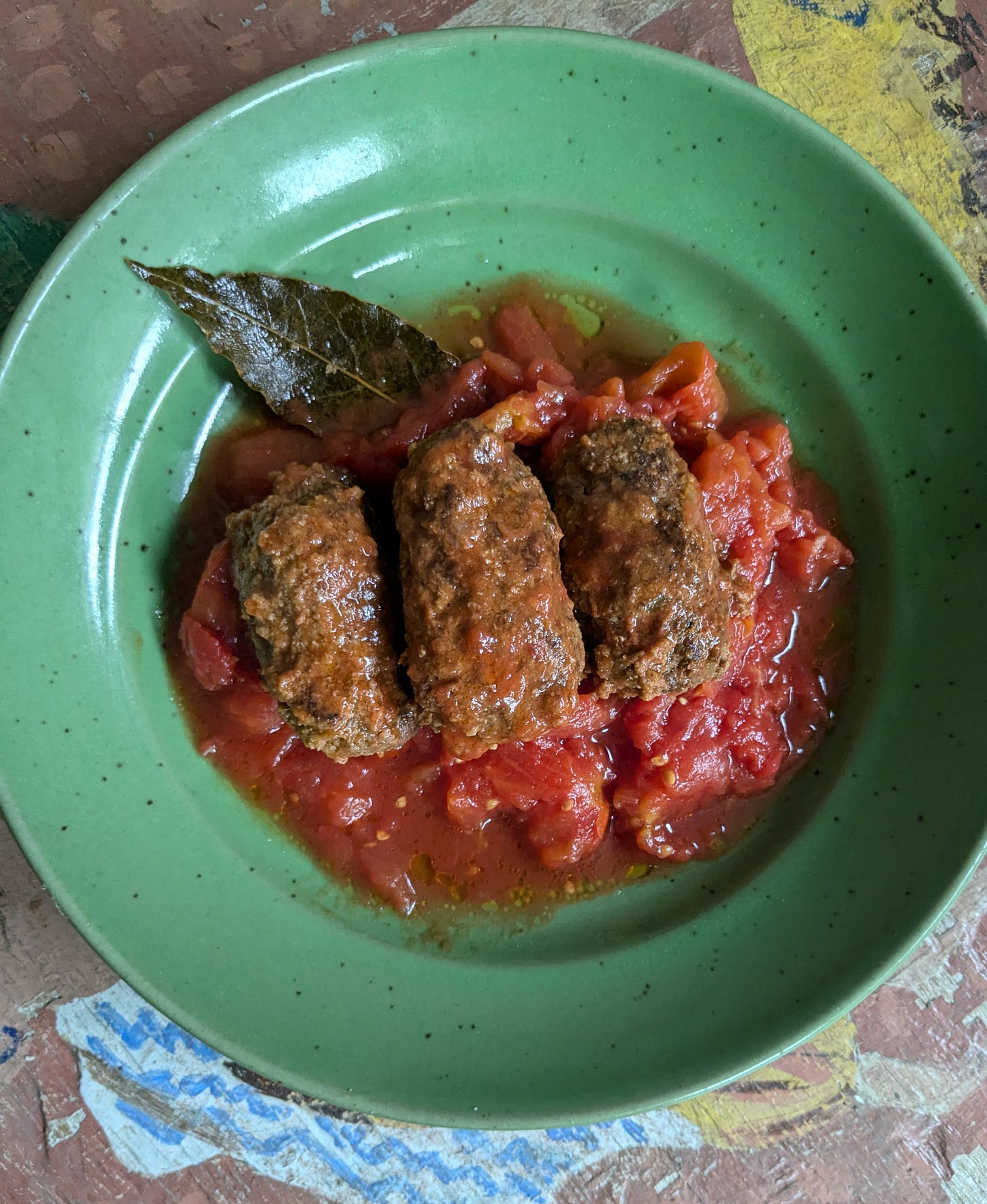When my father came back from the war, newly married, he placed an ad in the personal column of the London Times: "Have wife and desk, will travel". Spencer Curtis Brown, the American head of a London literary agency, hired him. His brief was to sail away on the Queen Elizabeth out of Southampton to New York, to sign as many American authors as he could.
He returned six weeks later with John Steinbeck among his roster. An enduring friendship was sealed when he and his wife Elaine came through London on their way to Rome. After a bibulous Soho lunch, my mother took Elaine off to Bond Street. My father and John repaired to Hardy’s on Pall Mall, hand-crafters of fly fishing gear since the 1870s and a must for John whenever he came to London. On this occasion, he bought a fishing hat covered in flies. So when my father (a Scot whose middle name was Angus) telegrammed the Steinbecks’ Italian hotel a few days later, he signed it ‘Angus of Old Muckie’. John’s immediate response was ‘Go home, Sassenach. Signed, Black Scone’.
That form continued until Steinbeck was asked by an American film director to smuggle a substantial amount of jewellery out of Ireland (no points for guessing who) and deliver it to a bank in Piccadilly. He and my father knocked on the bank door long after it had closed, John in a swirling navy boat-cloak lined in white silk that he’d bought on an earlier trip. John announced himself to the suspicious janitor as 007½. The credulous custodian found this plausible enough to let them in. From then on, John would sign off to my father as 007¾.
The boat-cloak gave less satisfaction. It was made by Gieves, tailor and supplier to the British Royal Navy and to Admiral Lord Nelson, commander of the British fleet at the Battle of Trafalgar, founded in 1785. John’s cloak was the same Admiral’s Boat-Cloak that Queen Elizabeth II was later photographed in by Cecil Beaton, but not as well furnished.
John wrote to my father to buy him some embellishments: “Two of those cap ornaments and also a silver or white metal throat-chain with supporting lion hooks for the boat-cape. These chain latches come separately and rings and pins to hold them to the cloth.”
When Steinbeck was in England researching the Arthurian legend, my parents drove north one weekend with him and Elaine to dark and brooding Alnwick castle, close to the Scottish border. They picnicked in the rain near Hadrian's Wall, the first of many soggy British picnics. "I can take your winters fine," Elaine wrote later to my mother. "What beats me are your summers.”
Sandwiches had no place in my mother's picnics. Vacuum flasks were stuffed with sausages to keep them hot, and heavy Mason mixing bowls of potato salad, of celery remoulade, grilled red peppers, steamed artichokes and the like, were hoisted from the car boot over the fields to the appointed spot - which required either a river or a passing train or preferably both to run through it. John was delegated to carry rugs and golfing umbrellas. And musical instruments. If it rained, the umbrellas were opened but no-one rushed for cover.
The sausages were always cooked very slowly over low heat to develop a sticky exterior. They were known as ‘bangers’ because if you didn't poke their skins with a fork, they would explode. My mother bought them from a butcher who made his own from field-roving pigs, flavouring them with sage and nutmeg and copious pepper. Not a crumb of profit-making filler bread was included in his stuffing. Colman’s fiery English mustard that made the eyes water was their most essential partner.
For a good many people, breakfast without a sausage isn’t breakfast. For me, that dreadful social invention the Cocktail Party is made vastly more bearable by tiny chipolata sausages on sticks. And a picnic isn’t a picnic without a sausage.
They are one of the few edibles that have successfully transitioned from ‘cucina povera’ (so-called peasant foods made from accessible and inexpensive ingredients) into the ‘posh foods’ category. A mixture of the scraps, blood, fat and organ meats of the pig stuffed into their cleaned intestines, sausages have a long history. They are recorded as far back as the 8th century BC on a cuneiform Akkadeian tablet, an extinct language spoken around Mesopotamia. A blood sausage is mentioned in Homer’s Odyssey. The Sausage was the title of a play by Epicharmus, while Aristophanes’ play The Knights is about a sausage seller who is elected leader. They were a key part of Lupercalia, the festival devised by Nero, emperor of Rome from 54 AD to 68 AD that every February 15th celebrated health and fertility. The former wasn’t always guaranteed. Leo VI the Wise, Byzantine Emperor from 886 to 912 AD, banned blood sausages following cases of food poisoning.
The sausage of which I always have a supply in my fridge for quick-cook stir fries, is lap cheong, the gnarly wind-dried Chinese sausage. Going back in origin prior to 420 AD, it’s compact and slightly sweet, flavoured with star anise and other spices and a fabulous stand-by. And the subject of the sausage can’t be closed without reference to the acme of sausages which aren’t British or Irish: German sausages of all varieties that snap like the best hot dogs under the bite, and which alone justify a trip to Berlin.
I’ve always wanted to make sausages from scratch. But I’ve never owned a food processor of the sort that comes with an attachment to stuff casings. So I make Greek soudzoukakia, Greek meatballs rolled into a sausage shape and baked in a rich tomato sauce. Not being too fond of ground cinnamon, instead of following traditional soudzoukakia flavourings, I use the spices the Greeks add to their loukanika. That name for Greek sausages goes back to ancient Italy and a sausage that came from Lucania, today’s southern Italian region Basilicata.
Loukanika are made only from pork, and flavoured with garlic, ground spices and orange peel. Soudzoukakia use equal weights of ground pork and lamb. Perhaps I should call mine ‘loukanoukakia’. But if you prefer to make them with beef instead of lamb, or all pork, feel free. Lamb alone is a little gamey. Make them in quantity and freeze what you don’t want to eat immediately. They’re a useful fall back. The ingredients list is long, but you probably have most of it and the method quick and simple
.
400g/14oz ground pork, or fatty pork you grind yourself
400g/14oz ground lamb
2 tablespoons garlic, minced
3 teaspoons of ground dry-toasted cumin
1 tablespoon ground coriander seed
1 tablespoon roughly ground black pepper
2 tablespoons fennel seeds
1 tablespoon dried oregano
2 teaspoons dried thyme
3 tablespoons grated fresh orange zest
1 tablespoon sugar
2 eggs, beaten
5 slices of stale bread, crusts off, soaked in milk or red wine and squeezed dry
salt and freshly ground pepper to taste
Oil for frying
Thoroughly combine all the sausage ingredients together (use your clean hands) and leave to mellow in the fridge for at least an hour or overnight. Bring back to room temperature then shape into sausages. Brown them all over in batches over medium-high heat and remove to a baking dish lined with kitchen paper to absorb the oil.
For the tomato sauce
Olive oil
1 medium onion, peeled and grated on the large holes of a cheesegrater
1 tablespoon tomato paste
2 garlic cloves, peeled and minced
235ml/1 cup red wine
800g/28oz passata or tinned chopped tomatoes, crushed a little further
1 teaspoon sugar
1 bay leaf
salt and freshly ground black pepper
Gently fry the onion in enough olive oil to cover the pan on medium-low heat until translucent. Stir in the tomato paste, and fry 2 minutes more. Add the minced garlic and fry for 3-4 minutes, stirring. Add the wine, passata or tinned chopped tomatoes, sugar and the bay leaf, salt and pepper to taste. Bring to a boil, turn the heat down to low and simmer until the sauce thickens, stirring occasionally.
Either carefully lift your sausages into the sauce and simmer, covered, on a low heat for 30 minutes, or bake the sausages in the baking dish pouring over the sauce and covering in foil, in a pre-heated 180C/350F oven for 30 minutes.










Hello Julia
This week's news makes me sit down and do lot of things I've intended to do for a while. We overlapped some years ago in St James's Place when I was Mark's secretary, and I have recently retired as a literary agent. So it's been good to find your v intelligent and funny substack.
Best, Elizabeth
From Austin, Texas, where Election night was no picnic whatsoever, I echo Ellen and Karen’s gratitude for having a chance to read your enchanting post today. It’s a welcome tonic to our toxic politics. Plus, I love learning your historical takes on food in every post you write.
In solidarity, from across the Pond.